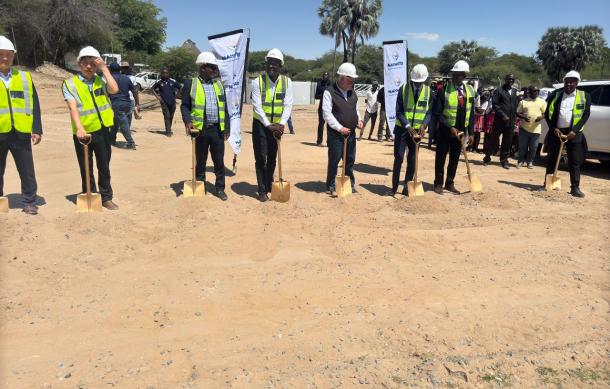
The Ministry of Agriculture, Water, and Land Reform is extending and upgrading the Outapi water treatment plant in the Omusati Region following a groundbreaking ceremony on Friday.
The existing Outapi water treatment plant was commissioned in 2001 to supply water to Outapi town and surrounding rural areas.
For over two decades, the plant has served as a reliable source of water for thousands. However, due to high urban demand, supply has now been surpassed.
"This project is designed to address these challenges head-on by increasing both the capacity and the quality of the water provided. The Outapi water treatment plant extension and upgrade will not only ensure a reliable water supply for the immediate needs of the population, but will also provide long-term sustainability."
Once completed, the plant will meet demand by processing up to 438 cubic meters of water per hour, up from the current 180 cubic meters.
The plant will be equipped with advanced filtration and purification systems to comply with Namibia's new water quality standards.
Agriculture Minister Carl Schlettwein states that the upgrade will guarantee water availability for residents.
"We are creating infrastructure for water supply for both bulk and consumption that will be fit for purpose until 2037. It goes above what we need now. This comes with a cost; its estimated cost for the northern region is in excess of 3.5 billion. I am happy to say that it is funded; we are not struggling to find the money. It is not a promise anymore that we will do it; we are doing it already, and you are seeing it. We are building; there are the contractors."
The project will be completed in 16 months.
The expansion and upgrade of the project align well with Namwater's five-year strategic plan focused on modernizing and expanding Namibia's water infrastructure.
"Water is not just a basic necessity; it is the foundation of life itself. It is the driving force behind economic development, social stability, and public health. For a country like Namibia, where water resources are often scarce and unevenly distributed, water security is not merely a strategic priority; it is an absolute moral imperative."





